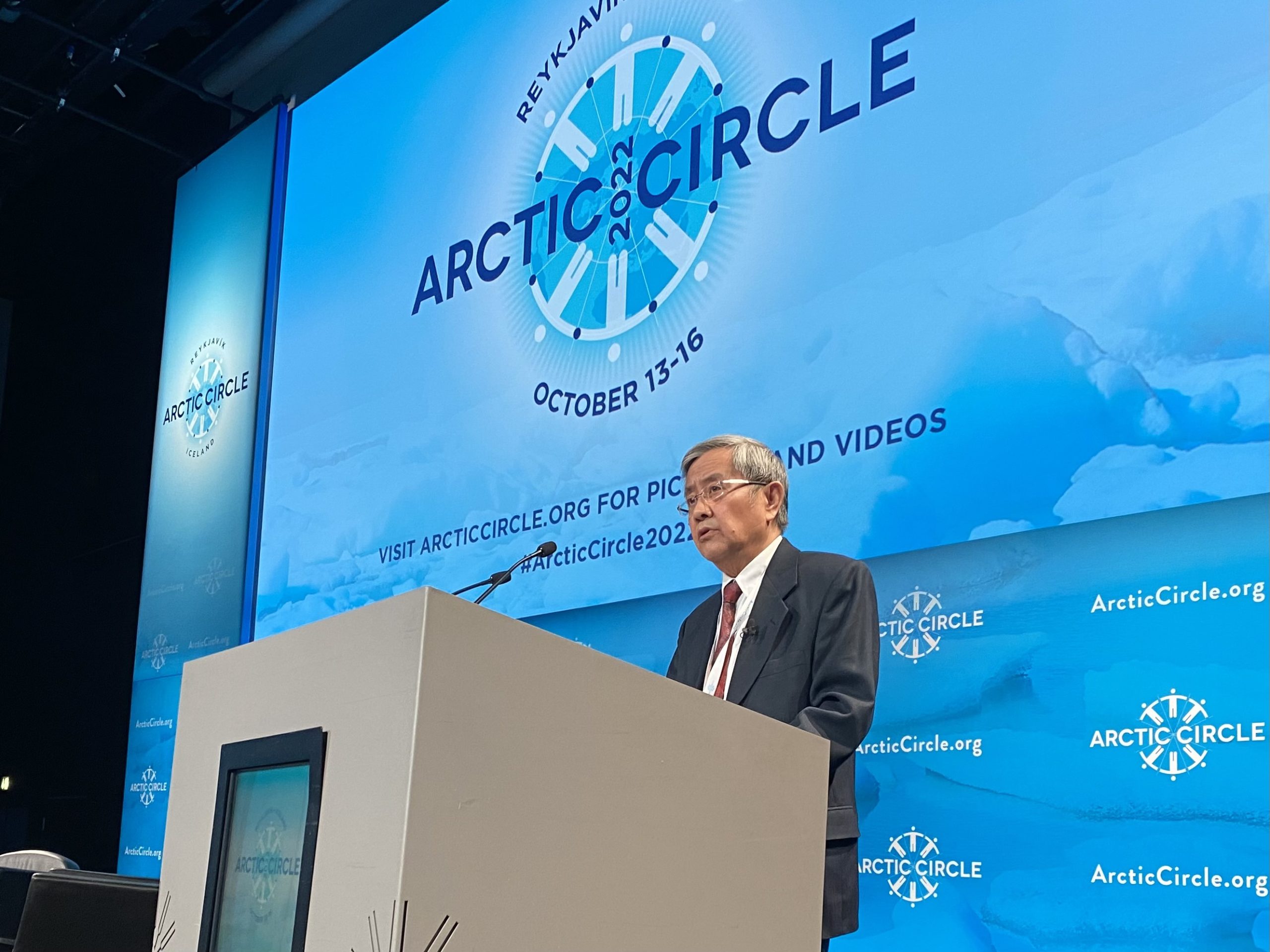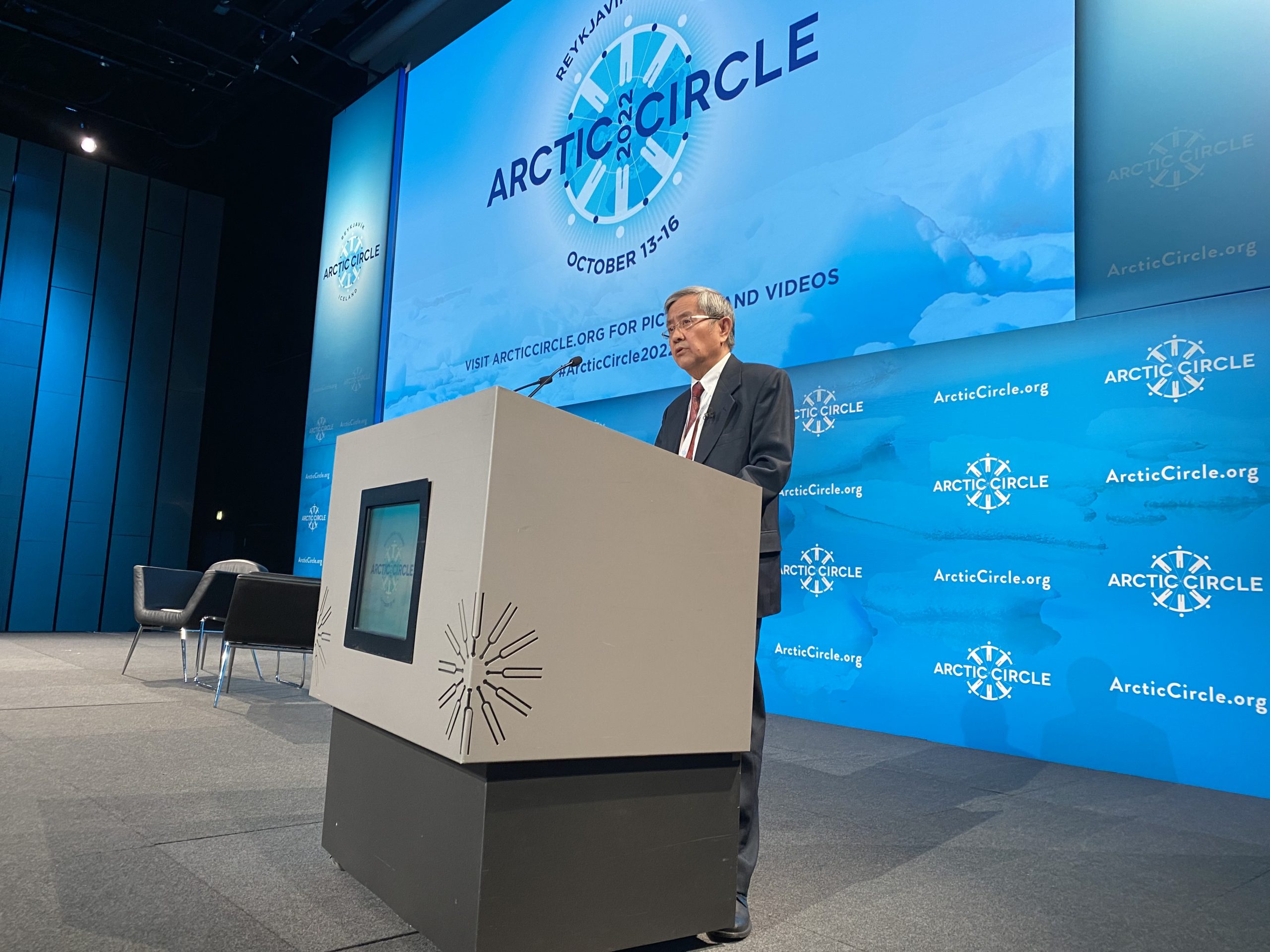China will not recognize an Arctic Council without Russia, envoy says
China does not support Norway’s forthcoming leadership of the Arctic Council without Russia’s involvement, and will continue to collaborate with an isolated Russia, the ambassador said.

REYKJAVIK — China does not recognize the legitimacy of the limited resumption of the Arctic Council, and the nation will continue collaborating with Russia and other Arctic nations, the Chinese special envoy to the Arctic said on Saturday.
The seven Arctic nations other than Russia, now known as the Arctic-7 or A-7, resumed some cooperation on the Arctic Council in June, three months after a temporary pause following Russia’s invasion of Ukraine.
But Gao Feng, China’s special envoy for Arctic affairs, said on Saturday that China did not see the fractured council as the true body — and expressed skepticism about Norway’s ability to assume the chair next year without Russia.
“If an A-7 so-called Arctic Council is come to the reality, I don’t think that is the original — that will be a different one,” he said at the Arctic Circle Assembly in Reykjavik, Iceland.
Because the council is a consensus-based body, there is no way to eject a member nation, he said. “So I really doubt about whether the presidency [chair] could be passed on to anybody or Norway could take over anything from them.”
Russia currently holds the Arctic Council chair, a two-year rotating status that is set to move to Norway in May 2023.
“The Arctic Council is still there,” Gao said, differentiating between an Arctic Council chaired by Russia and the limited resumption of work by the Arctic-7 nations.
Ólafur Ragnar Grímsson, the former president of Iceland who was moderating a question-and-answer session at the conference, asked if that means China will cooperate with all eight Arctic nations.
“Yeah, I think so,” Gao said. “When there is an opportunity to work together, we’ll do it. We’ll go ahead with that, either the A-7 or Russia.” China, an observer to the Arctic Council, does not have decision-making power, but it does attend meetings and working groups.
Gao urged a return to collaboration in the North in his remarks.
“Geopolitical competition and confrontation should not impede or interrupt international cooperation in the Arctic,” he said, calling for a resumption of dialogue, cooperation, and work on existing programs.
“The Arctic cannot — we cannot afford long-lasting costs for suspension or paralysis,” Gao said.
China has encouraged its shipping companies to explore Arctic shipping routes, invested in infrastructure along Russia’s Northern Sea Route as part of its Belt and Road initiative, and has pushed back on forthcoming recommendations from the International Maritime Organization for environmental protections in the region.
When asked by an audience member if the Chinese military has a role in the Arctic, Gao said, “In theory, yes,” because China is one of the five permanent members of the United Nations Security Council.
But there have been no UN authorizations for military action in the Arctic, he said, so “we don’t go. You can see that we don’t have a single soldier in the Arctic region. Remember that, yeah? Don’t believe the rumors. You can easily check out whether we have any soldiers in the Arctic.”
Gao’s comments came less than an hour after Adm. Rob Bauer, chair of NATO’s military committee, named Russia and China as potential threats to the Arctic.
After Bauer’s speech at the assembly, Grímsson took a question from He Rulong, the Chinese ambassador to Iceland, who challenged the remarks as “filled with arrogance and also paranoia.”
Bauer, in turn, asked why China had not disavowed Russia’s attacks against Ukraine, and asserted that “NATO has to take steps to make sure that we are able to deter and defend the threats” from any nation — including China — challenging the rules-based international order.

